Communications and Marketing
Astronaut research in diving suits
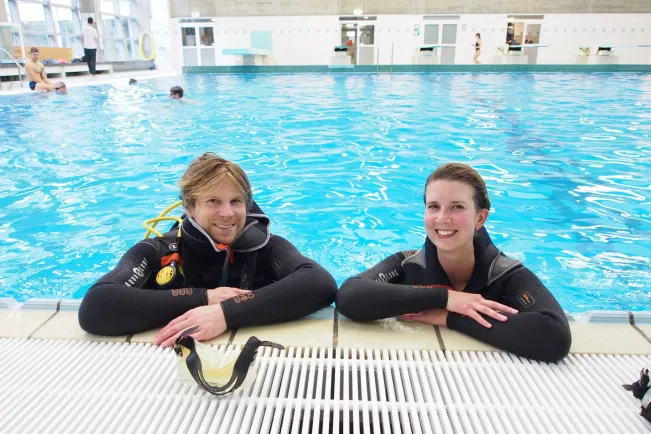

The aim of the study is to recognise the weaknesses of human perception in an atypical environment and transfer these findings to weightlessness. Astronauts at the International Space Station (ISS) will also benefit from the results of the study in the swimming centre at the German University in Cologne for the Canadian Space Agency in the medium term. In short, the scientific findings will help them estimate the weaknesses in human perception and orientation better.
Test subject carrying out the tests
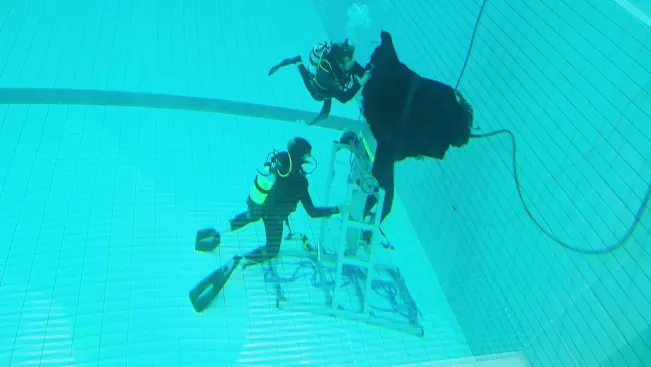
The challenge
The test subject, a young pharmacist from Cologne, was effectively built into a pair of oversized VR glasses* under water and carried out tests on her perception of her own movements from two different positions. She accomplished the task brilliantly. From both a lying and a standing position, she had to complete a series of tests, including estimating the size of an object in the space and the distance to a target position within the simulated environment.
*(It can be seen in the pictures and on the video: the test subject was looking at a screen without receiving any other visual stimulus from the environment, as her head was fixed in a cylinder directly in front of the screen.)
Vection?
The term “Vection” describes the effect which occurs when a person perceives a movement in their field of vision and also has the impression that they are moving themselves. A classic example is when you are sitting in a train and think it is moving, when it is actually the train on the next platform setting off.
Dr Nils Bury gives some background information (German)
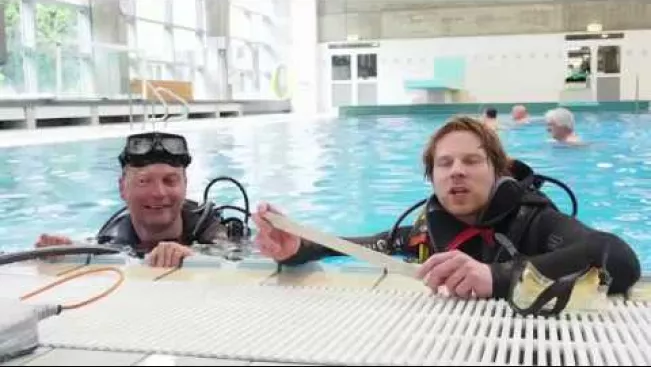
Under water and in space
Weightlessness in space and the experience of floating while diving are very much comparable. In Houston, the astronauts practice their work at the ISS on an exact replica in a diving pool the size of a football pitch.
The test set-up is set to travel into space before the end of the year. The astronauts on the ISS will test the scenarios in the series of tests under weightless conditions with virtual reality glasses.
Gallery
Photos by Miriam Lüdtke-Handjery and Juri Küstenmacher

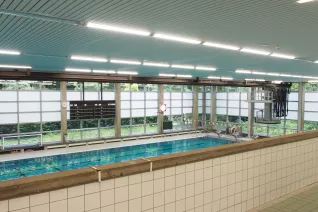
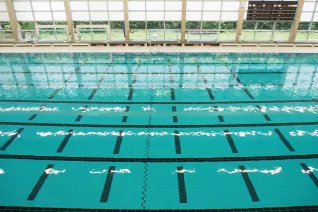
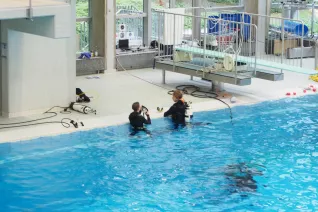

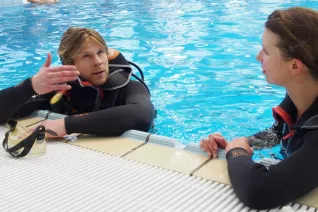
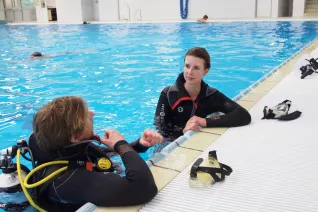
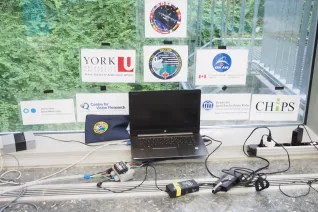
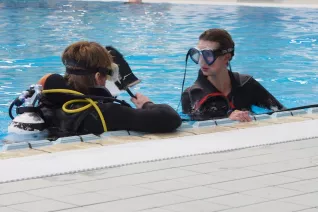
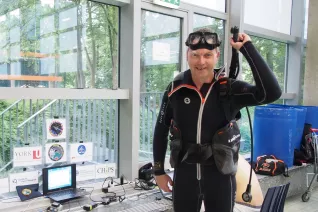
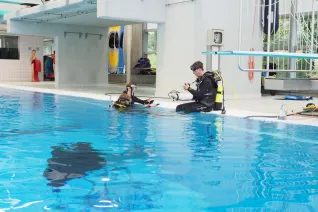
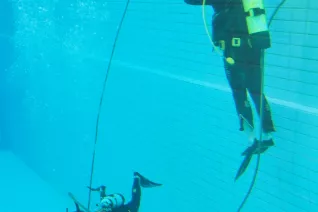
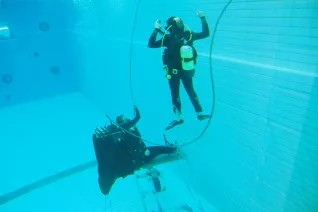
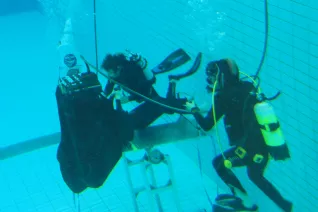
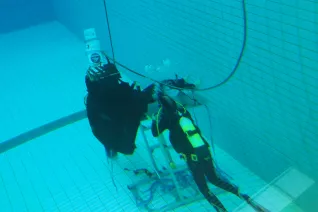
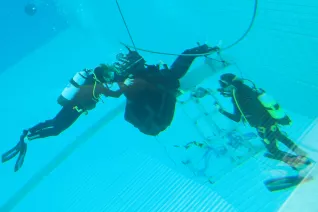
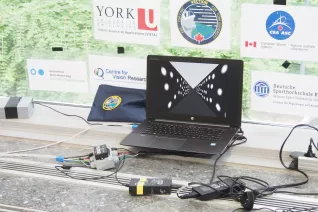
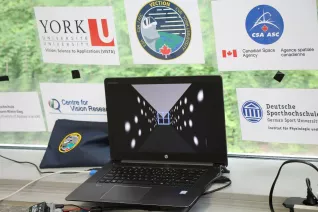
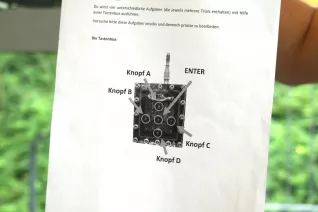
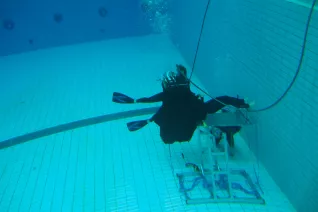
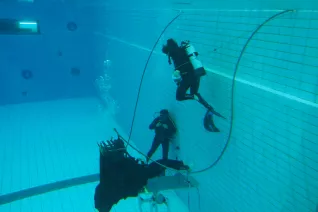
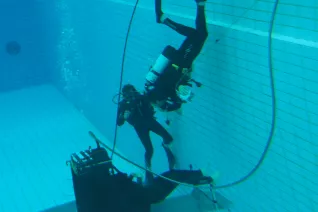
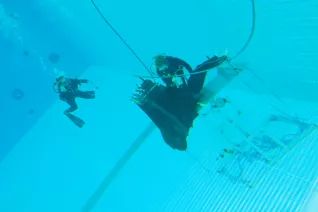
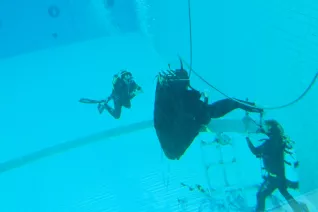
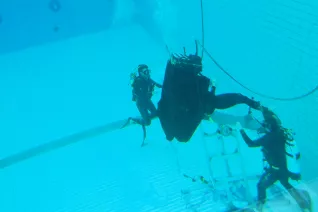
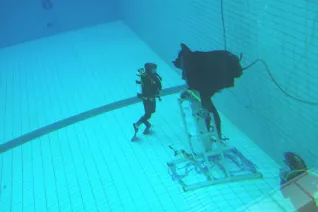
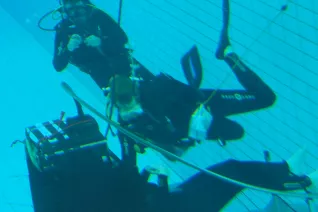
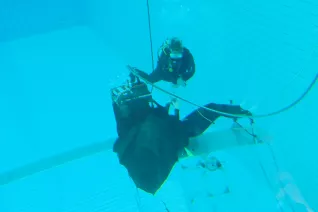
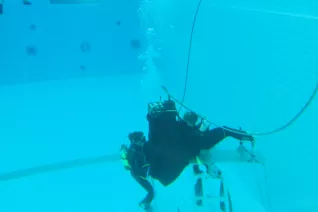
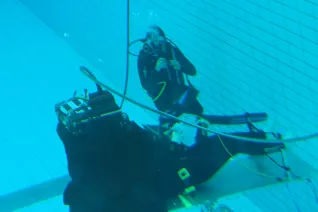
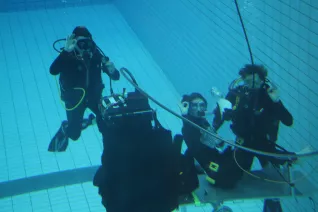
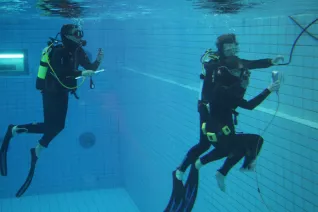
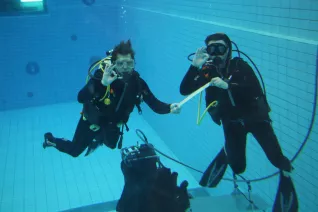
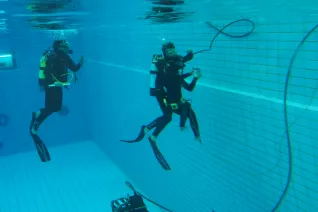
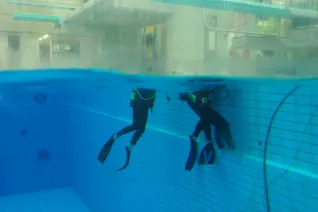
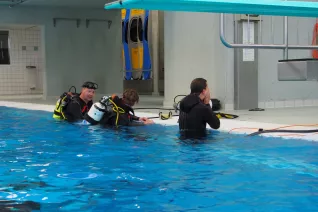
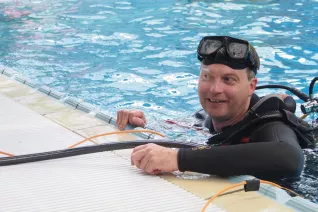
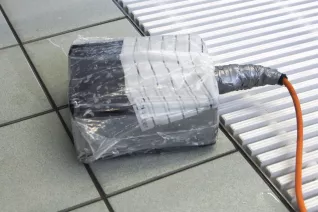
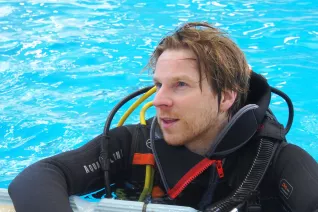
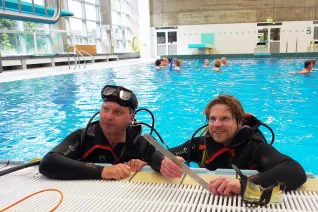
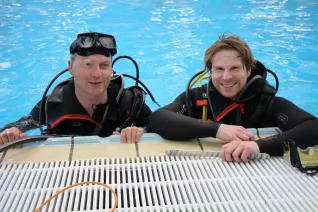
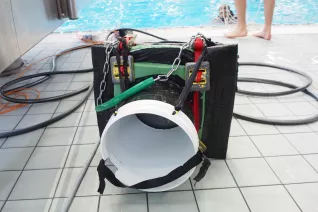
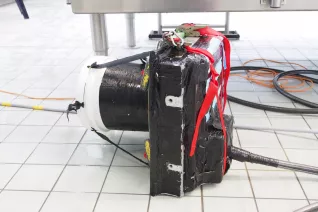
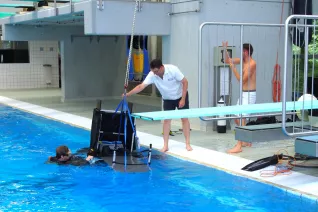
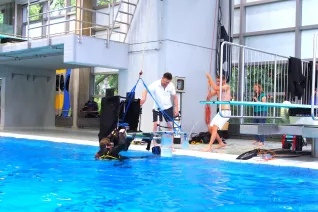
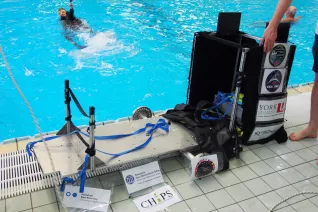

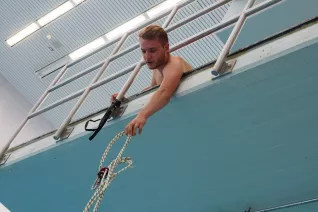
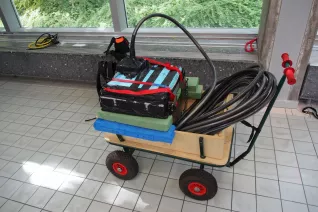

Contact

Location
Sankt Augustin
Room
E 241
Address
Grantham-Allee 20
53757, Sankt Augustin
Contact hours
Montag bis Freitag: 10 bis 15:30 Uhr
Telephone
+49 2241 865 9712
















































